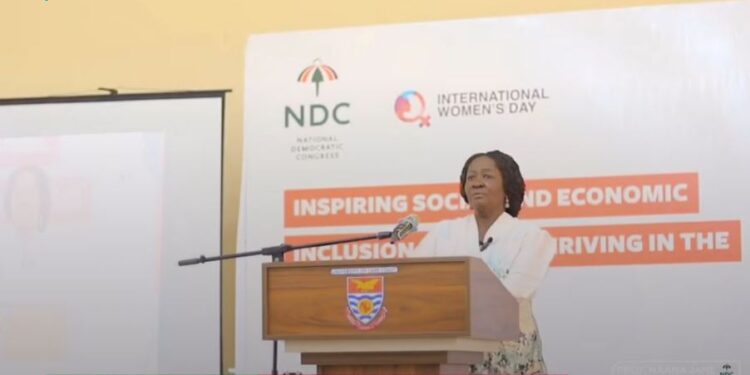Vice Presidential Hopeful for the NDC, Prof. Naana Jane Opoku-Agyemang has highlighted the neglect of women in significant economic and social projects in the country, emphasizing the need for support and empowerment for women in these areas.
To her, women possess great potential and should be adequately supported.
However, highlighting the setbacks of women, she stressed the disproportionate impact of daily challenges women face such as providing food for family and girls fetching water before going to school.
“So, you see how even the provision of water has a lot to do with our lives. If you have a girl in the home who must fetch water three, or four times before going to school, won’t she be tired when she gets to the classroom? Won’t she sleep? Then in the end, those of us researchers will come and say, how the girls are not doing well.
… How much energy does she have? And that is why we need to make our voices heard in the places where the decisions are made, and this is why we need the support of all of us to support women to move into those spaces,”
To that end, she pleaded for collective support for women in ensuring their voices are heard in decision-making spaces.
Prof. Naana Opoku Agyemang emphasized this at an International Women’s Day conference held at the University of Cape Coast under the theme: “Inspiring Social and Economic Inclusion: Women Thriving in the 24-hour Economy.
The conference was organized by the National Democratic Congress and the Friedrich Ebert Stiftung Foundation to sensitize and empower women to participate in the 24-hour economy policy by the NDC.
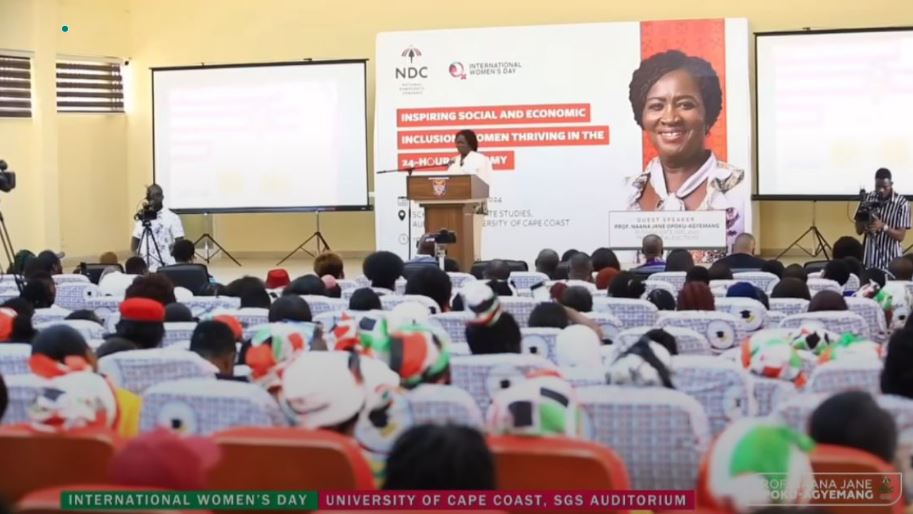
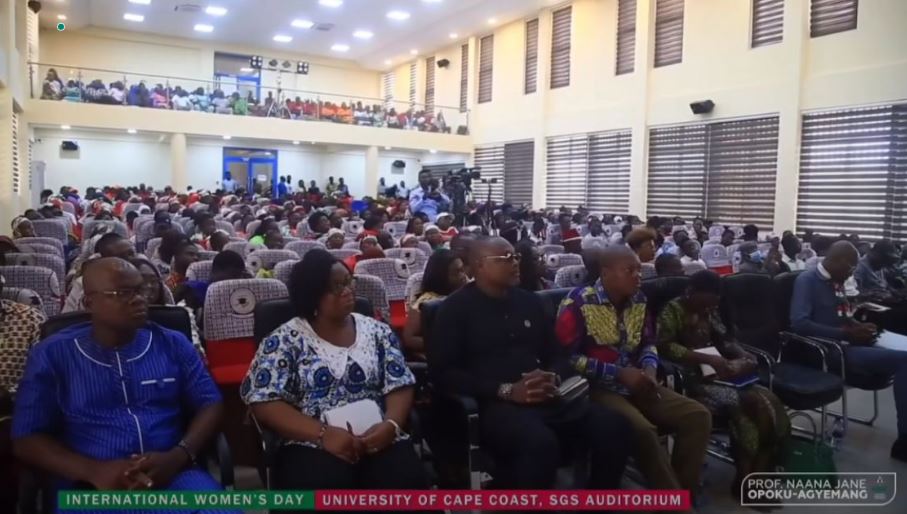
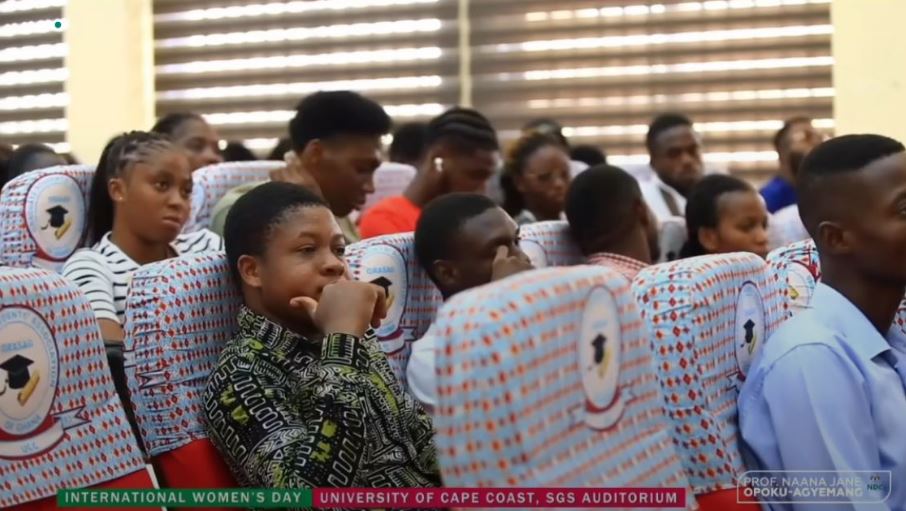
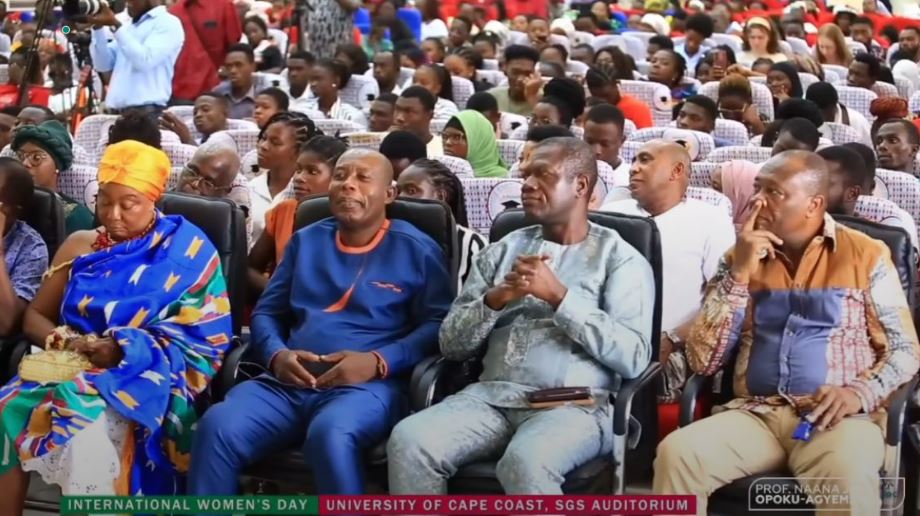
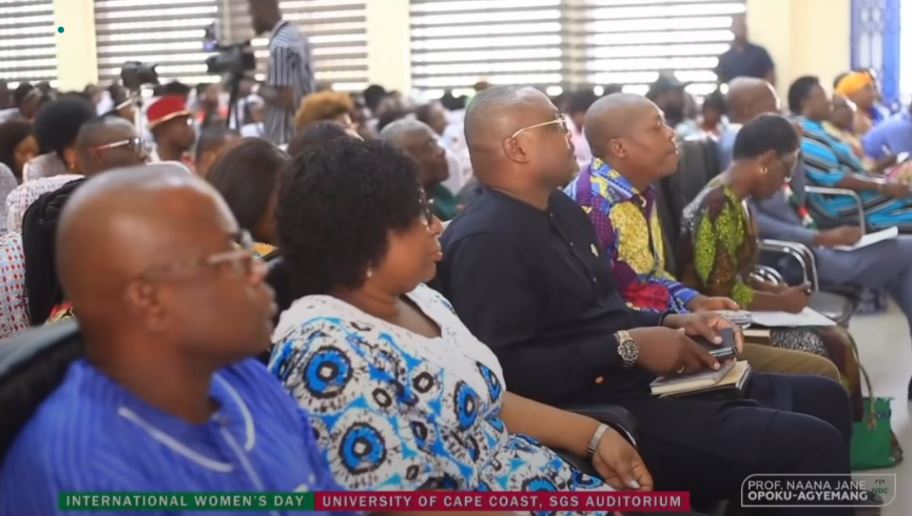
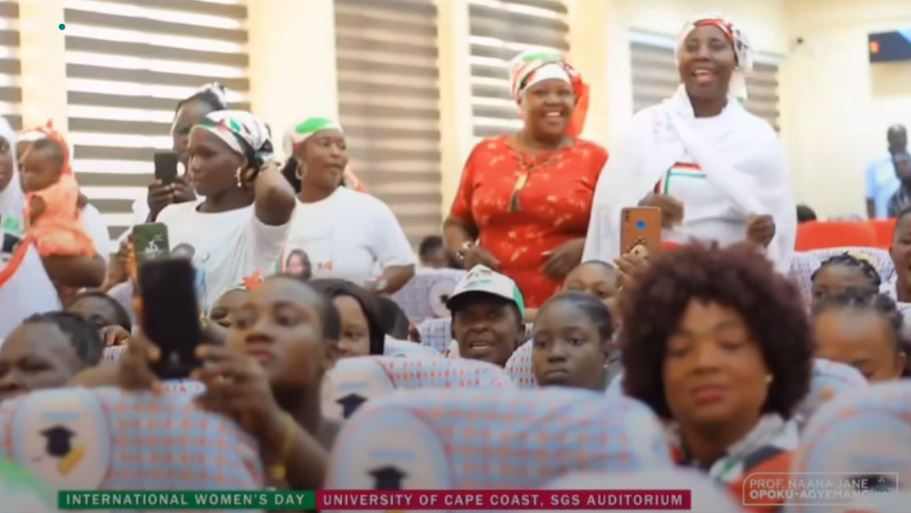
Meanwhile, the Dean of the School of Business at the University of Cape Coast, Professor John Gartchie Gatsi underscored the need for skills training especially among women to enable them to work in the party’s proposed 24-hour economy.
Reiterating the need for that, Prof. Gatsi emphasized that the 24-hour economy will focus on competitive skills and market survey skills, among others to enable to participate in that economy.
“Now we are producing at a less competitive level, so what we produce in the country is more expensive than what we import into the country. That is killing our industrial base. So we need to work very much on competitive skills for those who will be participating in the 24-hour economy.”
Prof. Gartchie Gatsi implored women to develop their leadership skills adding “Of course, if you are engaged in the 24-hour economy, you may place the role of a leader at the point. So leadership skills are important to be developed, especially for our women who have been doing a lot, but we have not scaled up their activities so much.”
According to him, “The 24-hour is going to give a chance for us to focus on lifting them …”
On her part, Professor Akua Opokua Britwum, with the Department of Labour and Human Resources Centre at the University of Cape Coast emphasized the need for clear policies for all stakeholders regarding participation in the 24-hour economy.
To her, facilitating market participation for women is key, especially in the context of cross-broader trade and the African Continental Free Trade Agreement.
She argues that simplifying the bureaucratic procedures and training service providers will ensure women’s active participation in the proposed 24-hour economy.
“And can we reduce bureaucratic procedures? Because one of the reasons why women don’t sign on, I mean, this market woman who is selling fish and going to the office, and the person sitting there looking down on her, and speaking to her in such hostile language, and then she has to come and sit forever to sign on something. We need to look at that. And then service providers have to be trained to be humane and respect women.
Read also: I shall give this noble task everything in me – Prof. Naana Jane Opoku Agyemang
Source: Angelina Riley Hayford/ATLFMNEWS















